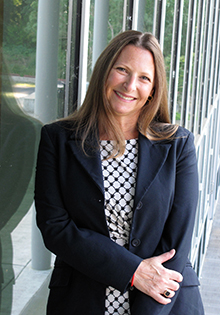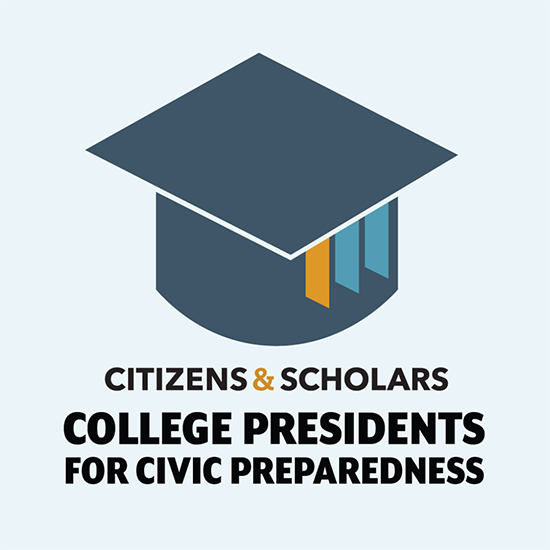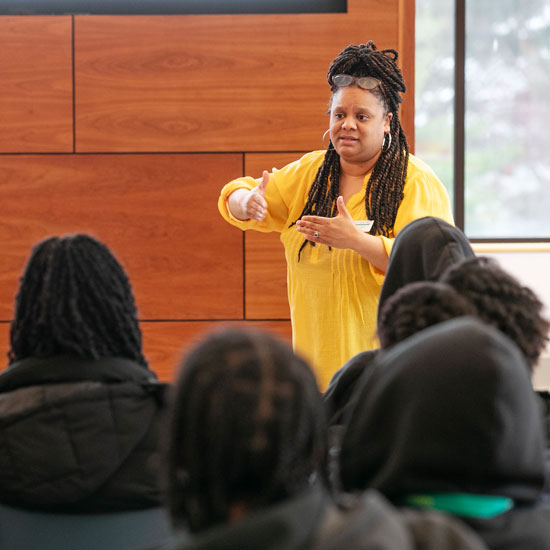Ask more, talk less
App helps teachers ask more, talk less
Teacher Kimberly Mitchell ’91 was a philosophy and history major, but she says her
freshman liberal-studies course “The Human Experience” really “set the foundation
for who I am as a teacher: someone who looks for the connections between disciplines.”

Kimberly Mitchell ’91 has a FitBit-like app to
help teachers hone their communications
with pupils. (Photo by Joel Levin)
A co-founder of Seattle-based Inquiry Partners, she recently helped develop an innovative tool to help teachers promote creative, active learning. The idea is to ask more and talk less, encourage questions, and get students to connect their learning to the real world. She and her partners won a Small Business Innovation Research grant from the National Science Foundation to support their work on Earshot, a user-friendly app that builds on language processing and voice analysis technology to provide real-time feedback for teachers on their talk time, wait time, and frequency and complexity of questioning. Mitchell describes it as a sort of FitBit for teachers.
“We’ve done focus groups and the response was huge,” she says. Before they use the app, “teachers don’t realize how much they are talking, or that the questions they are asking are low-level, not those seeking analysis.” Too often, she says, “you see students passively listening to the teacher and following instructions,” whereas in an inquiry-based classroom “you see students leaning in, taking control, and doing the majority of the talking and questioning.” It’s the way she learned at Skidmore, and the way she wishes she had learned in grade school. Of the 3.5 million K-12 teachers in the US, Mitchell and crew hope even 5 to 10% will become early adopters, particularly at middle and high schools.
While you might call Mitchell an “education reformer,” she prefers to talk about improving the classroom experience for both students and teachers, using inquiry-based instruction—a model as old as Socrates but wired for the 21st century. “The new economy is predicated less on a model of industry and goods and more on a model of creativity and ideas,” she explains. “We are creators. That’s what makes us human. We connect things. That’s what I am trying to nurture in the classroom.” She adds, “I give credit to Skidmore for the abilities to go beyond, make connections, and not be afraid of change.” —Kathryn Gallien


